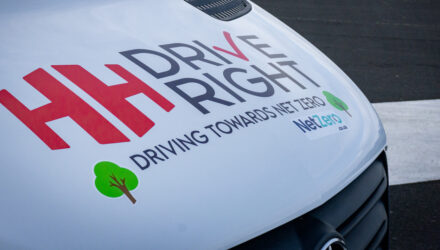
Robin Pointon, MD of Go Travel Solutions
I spend my business life promoting the case for sustainable travel.
This sector can be perceived as being overly-fixated on cycling, walking and public transport as ‘alternative’ modes of transport – sometimes to the point of developing an anti-car lobby. However, we firmly believe that car use is an important part of the sustainable travel mix.
Sustainable travel is not just about getting cars off the road. If we are to achieve the necessary major reductions in CO2 emissions from transportation over the next 10-20 years, manage traffic growth and engage businesses, then cars have to be part of the solution and professional car management is required, for both private and fleet vehicles. They cannot and should not be seen as the problem.
Employee requirements drive consideration of transport options
Businesses today are built around the flexibility that cars offer. For those working in out of town destinations the only real option is the car. However, as factors such as reduced parking spaces and rising fuel costs impact these businesses ever more, other transport options begin to be considered.
As an example, we’ve recently helped to establish a new lunchtime shuttle bus service to enable up to 1,700 staff at the Tilbrook business estate in Milton Keynes to travel to the nearby Kingston retail centre. The new service provides an easy and sustainable travel option for staff to reduce car use during the day, in turn helping to reduce the need to bring a car to work.
The Tilbrook Travel Hub is working on a range of other initiatives including helping staff to reduce the need to commute by car and as single drivers. These include encouraging car sharing and developing a bike buddy scheme.
How do we use cars for business?
So, in building the business case for a modal shift toward sustainable travel, we encourage a different mindset in how cars are deployed. We work on the basis of a travel decision tree, a hierarchy on determining travel by cost (including time) and carbon.
Firstly we consider the options to use smarter working tools to avoid the ‘trip’. Cloud resources, improving IT connectivity and remote conferencing tools, enable more and more meetings to take place without the need to spend hours behind the wheel for a short meeting.
However in many cases, face-to-face meetings are essential. We encourage consideration of whether public transport caters for business needs. Where the answer is still a clear no, then we recommend use of cars but in ways to reduce cost to the business and the wider environment. The focus here is to avoid the default choice of paying up to 45p per mile fuel expense for private car use by employees.
Exploring the opportunities available
There are several opportunities/challenges for integrating private and fleet car use into a sustainable travel plan.
Organisations need to develop their own policy around business travel, using cars when they offer the best solution and taking into account the duty of care and legal responsibility for employees driving their own cars. If not closely monitored, they may leave themselves open to claims.
By adopting low carbon approaches – running lower CO2 emission/hybrid/electric vehicles, for example – businesses can unlock potential new funding opportunities for a range of sustainable transport grants. Grants are available in many parts of the country via schemes like the Local Sustainable Transport Fund, supporting businesses to go low carbon and reducing business mileage. Taxes also favour lower-emission vehicles and they generally offer better fuel consumption.
The Energy Saving Trust for example can carry out green fleet reviews for 25 vehicles or more to demonstrate the savings your business could make.
In addition to all of this, businesses and employees can also identify car sharing opportunities – both travelling to work and on business travel, or could consider working with outsourced car clubs such as Hertz 24/7 or Enterprise Car Share. These solutions tend to allow use by different employers and employees, available 24/7, capability to book online anytime, and not tied to office hours. Carplus is a reliable, independent place for car club information.
Will you take up the challenge?
Cars are an essential part of business travel and will remain so. Our challenge, and one that we would encourage all businesses and fleet operators to consider, is how do we best utilise the tools available to reduce the cost and carbon impact of commuting and business travel, getting the best out of cars for business?
Robin Pointon is Managing Director of Go Travel Solutions – a specialist consultancy for sustainable transport, serving employers, public bodies and travel providers.




















